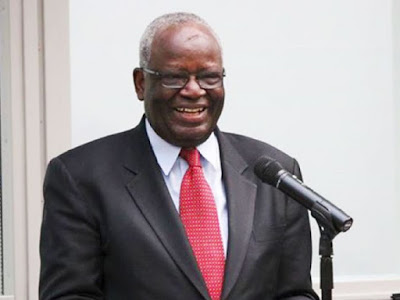Ambassador Ibrahim Gambari, former Minister of External Affairs, has called for the adoption of the reports of the National Conference (Confab) held in 2014 in order to effectively tackle Nigeria’s security challenges.
Protracted attacks by insurgents, kidnapping, killings and other security challenges have lately surged up agitation for state police. The recent is the ‘Operation Amotekun’, a security network proposed by governors of the states in the South-West Region of Nigeria.
Gambari pointed out that it has become very necessary to adopt most of the recommendations of the 2014 conference to re-structure policing in the face of growing insecurity across the country which has consequently led to loss of confidence in the current security architecture.
Read Also Imo: Biafra Zionists give Uzodinma March 9 deadline to quit Govt House
The former minister made this suggestions yesterday in Abuja during a public lecture titled: “‘Development Resolution: Overcoming Global Conflicts and their Local Interactions,” which was organised by Ubuntu Centre for African Peace Building in collaboration with West African Network for Peace Building (WANEP) and Savannah Centre for Diplomacy, Democracy and Development (SCDDD).
“There is a lack of confidence in the current arrangement. The evidence is that people are being killed every day. There were recommendations at the 2014 National Conference. We better go and look at it and see how we can have a structure that will work,” he said
Gambari also mentioned that the country’s security system would not be effective unless Nigeria localises its security apparatus and architecture.
According to him, attacking violence, extremism and terrorism need the cooperation of local communities. “You need intelligence and to get it you need to become friends and partners of the local community. But you can’t get that kind of cooperation when there are human rights violations and you are afraid of the security,” he said.
He also stressed that as Nigeria strives to achieve peace, it should also put in place infrastructures for economic development. “Even if you have peace, you can’t eat peace. Peace is a necessary condition but not a sufficient condition for development because you must have a means of livelihood.
“How do you build employment opportunities? How do build an educational system that emphasis entrepreneurship, in order words job providers, not job seekers? How do you provide infrastructure for people to invest? How do you encourage local investment?” the former minister queried.















